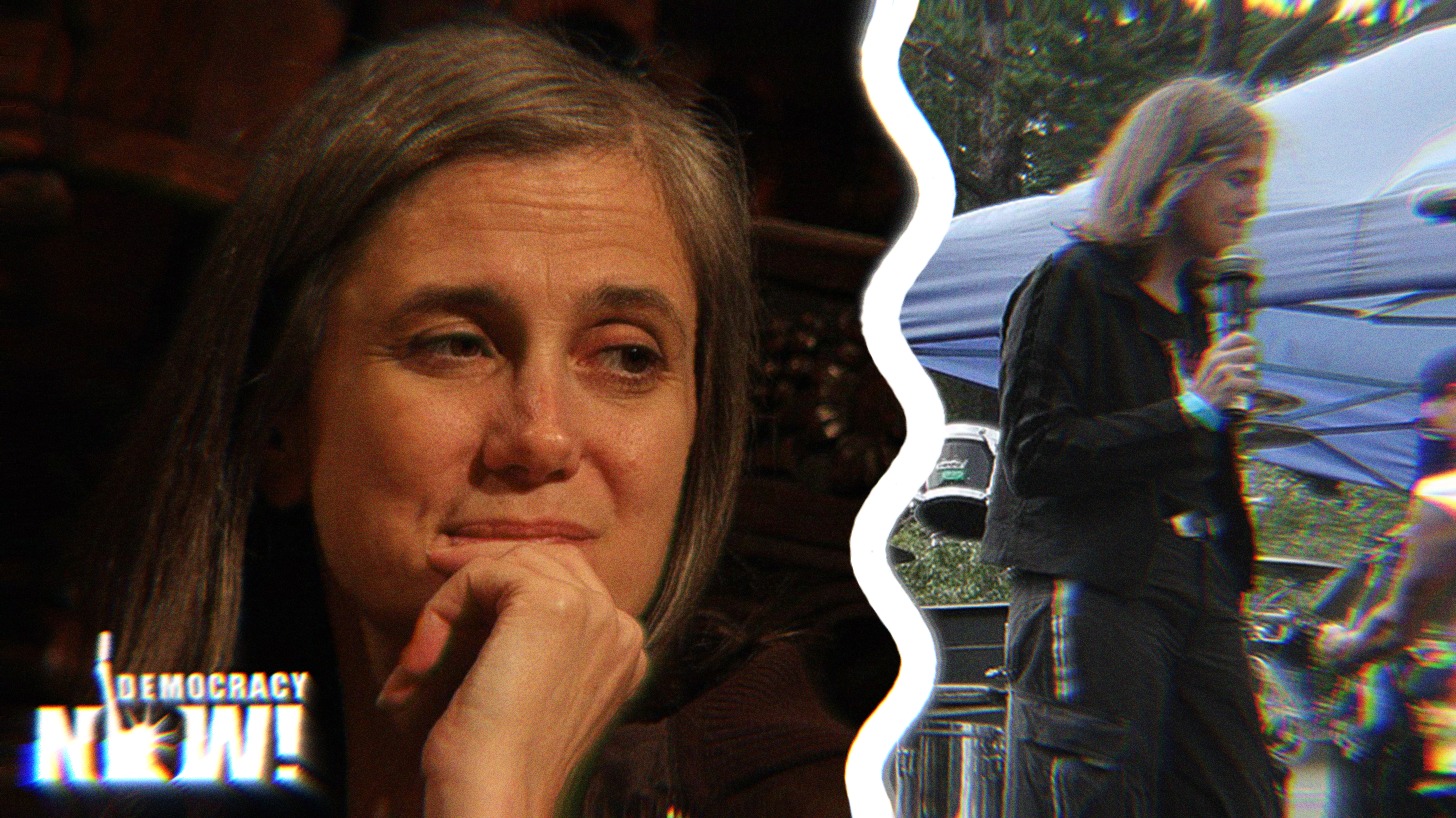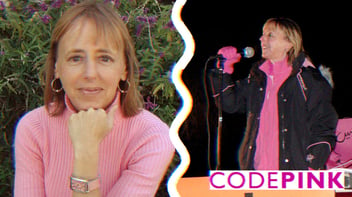Progressive Spotlight: Amy Goodman.
A Towering Figure in Media.
 Image Description: Amy Goodman's headshot alongside the Democracy Now logo and a photo of her speaking at an event.
Image Description: Amy Goodman's headshot alongside the Democracy Now logo and a photo of her speaking at an event.
Amy Goodman personifies what it means to be a fiercely independent journalist in the age of extreme mass media consolidation and the slow-walking demise of traditional news publishing.
Best known as the face behind Democracy Now!, the daily news program centered around human rights and the constant war—politically and socially—against marginalized groups, Goodman has also co-authored six New York Times best sellers and has been honored by various journalistic institutions for her groundbreaking and era-defining work.
Goodman co-founded Democracy Now! in 1996 as a radio show broadcasted across nine stations. Unlike other news agencies, Democracy Now!, under Goodman’s leadership, had the foresight to leverage emerging technology amid the changing media landscape and grow into a premier independent digital outlet.
While the program is still available on various radio stations throughout the U.S., including Pacifica and NPR, it is also streamed live and boasts an incredibly engaged following on YouTube, where it has nearly 2 million subscribers.
Much of its success and widespread appeal is due to Goodman’s tireless advocacy for human rights, civil liberties, and the plight of marginalized groups.
Democracy Now! also remains one of the few news outlets that consistently shines a spotlight on indigenous rights.
Arguably Democracy Now!’s most impactful work in recent years was its coverage of the Standing Rock protests over the controversial Dakota Access Pipeline, which inspired thousands of supporters to set up camp and protest against the crude oil pipeline’s construction.
While Goodman and Democracy Now! provided extensive coverage throughout the months-long demonstrations, its documenting of private mercenaries indiscriminately deploying pepper spray and using dogs on protesters sparked global outrage and condemnations.
While no journalist wants to become the story, that’s unfortunately what happened with Goodman during her coverage of Standing Rock. After Democracy Now!’s footage went viral, local authorities in North Dakota decided some accountability was in order—but not for the private contractors attacking demonstrators. Goodman was charged and accused of participating in a “riot,” in direct violation of her press freedoms. Her legal fight also drew outrage, and a North Dakota judge later blocked her prosecution, saying there was a lack of probable cause.
For Goodman, the Standing Rock incident was hardly the most harrowing experience in her career. In November 1991, she was covering the pro-independence movement in East Timor and survived the “Dili Massacre” in which more than 270 people were killed by Indonesian troops.
Since the so-called “war on terror,” Goodman and her colleagues have provided invaluable coverage of American war crimes, atrocities, and the rise of the surveillance state. While much of the media amplified government propaganda during one of the most consequential periods of modern US history, Democracy Now! defiantly challenged government assertions, a tradition that it continues to carry on.
While so many top journalists and media executives lavish praise on one another, Goodman is rarely credited outside the indie media ecosystem for building a diverse, multi-platform digital news outlet that remains, at its core, a voice for the voiceless.
As for Goodman herself, she’s truly a towering figure in media and the rare journalist who has never lost sight of the mission: holding the powerful to account, questioning authority, demanding answers, and shining a light on injustices everywhere.
Image Source
- Nick Bygon, CC BY 3.0, via Wikimedia Commons. Changes were made.
- Gohsuke Takama from Tokyo, Japan, CC BY 2.0, via Wikimedia Commons. Changes were made.
Rashed Mian is the managing editor of News Beat. Mian previously covered civil liberties and the Muslim American community for Long Island Press. Mian graduated with a degree in journalism from Hofstra University. Mian is interested in under-reported stories that impact disenfranchised communities as well as issues related to civil liberties.


